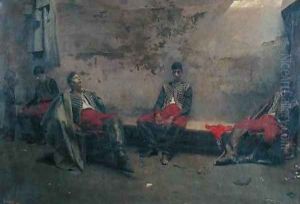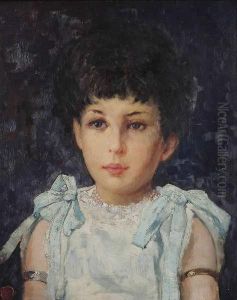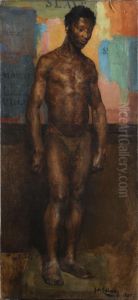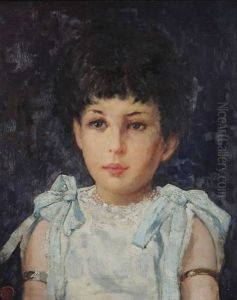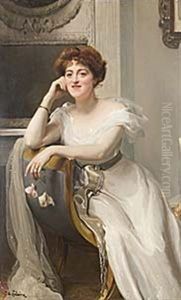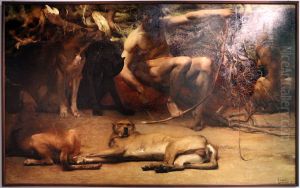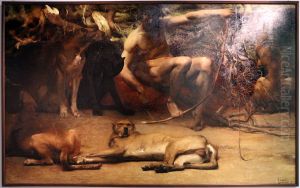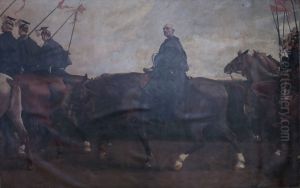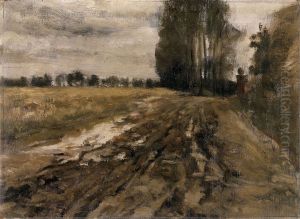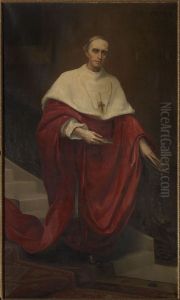Jacques de Lalaing Paintings
Jacques de Lalaing was a notable Burgundian knight and renowned member of the Order of the Golden Fleece, born in 1421 into a noble family in the County of Hainaut, which was then part of the Burgundian Netherlands. Although he is often remembered for his chivalric endeavors and participation in tournaments, Lalaing was also involved in military campaigns and was considered one of the most illustrious knights of his time.
His early life was marked by his induction into the chivalric culture that was at its zenith during the 15th century. He quickly gained fame through his participation in tournaments across Europe, where he displayed not only martial skill but also the virtues of chivalry, such as courage, honor, and courtesy. He traveled extensively, which was a common practice for knights of his standing, seeking out tournaments and opportunities to demonstrate his prowess.
In 1452, Jacques de Lalaing was appointed governor of the County of Holland and Zeeland. Despite his administrative responsibilities, he continued to engage in martial activities. His life was cut short during the siege of Poucques in 1453, where he was struck by a cannonball. The death of Jacques de Lalaing during this siege marked the end of an era for the chivalric tradition, which was increasingly overshadowed by the advent of gunpowder and changes in military tactics.
After his death, the chronicler and herald Jean Le Fèvre de Saint-Remy wrote a biography of Jacques de Lalaing, which helped cement his legacy as an exemplar of the chivalric ideal. His life and deeds were also commemorated in the illuminated manuscript 'The Book of the Deeds of Jacques de Lalaing,' which offers a rich visual account of his career and the tournaments in which he participated. The legacy of Jacques de Lalaing lives on in the annals of chivalry and medieval history as an embodiment of the knightly virtues of his time.
